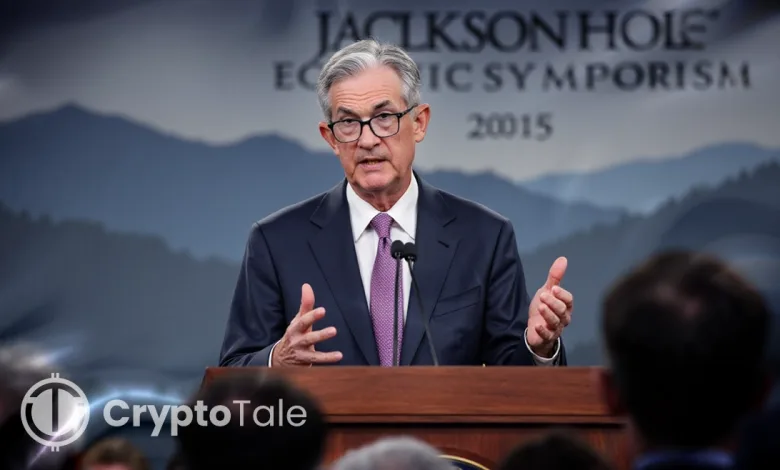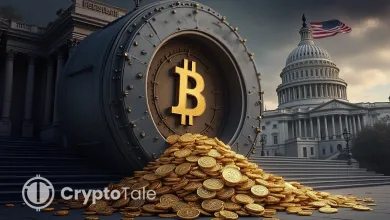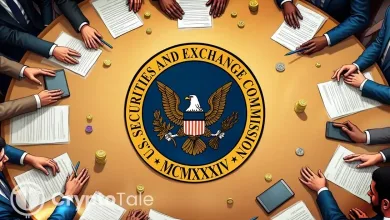Will Powell’s Jackson Hole Speech Signal a Fed Rate Cut?

- Powell’s Jackson Hole speech may signal a Fed rate cut amid weakening labor data.
- Persistent inflation and a softening labor market complicate the Fed’s Q4 2025 policy outlook.
- Political interference and economic pressures test the Fed’s independence and goals.
The annual Jackson Hole symposium begins Thursday with the Fed at the center of global economic attention. Central bankers and financial leaders will examine labor market trends amid soft economic signals. As weak data reshapes expectations, all eyes now turn to Fed Chair Jerome Powell’s upcoming speech on interest rates.
Interest Rate Cut Expectations Grow as Economic Data Falters
The market is expecting the Fed to cut its rate in September because of the worsened job market data. Recent reports indicated that non-farm payrolls only added 73,000 jobs in July, with revisions being negative in prior months. This steep decline has led to speculation that the Fed may lower its benchmark rate.
The labor market has struck back, forcing the Fed to reevaluate its current monetary policy. President Donald Trump’s dismissal of the Bureau of Labor Statistics commissioner further politicized the issue. Though the Fed is independent, the increased pressure from the White House has led to increased scrutiny.
The price hikes are adding to concerns, as inflation remains stubbornly above the Fed’s 2% target, despite tariffs and restrictive immigration policies slowing growth. These policies would again increase consumer prices, making the Fed’s decision a bit complicated. As unemployment risks begin to form, calls to change policy are rising.
Powell’s Speech May Define the Fed’s Policy Direction
Powell’s Jackson Hole address is expected to reveal the Fed’s next move in monetary policy. Two members of the Federal Open Market Committee have already signaled support for lowering rates. Markets now await Powell’s confirmation on whether the Fed will ease borrowing costs next month.
If Powell suggests the necessity of retaining the current rates, then the market volatility would rise. Any admissions of a decline in growth or labor pressure can indicate a more dovish turn. The Fed is confronted with the challenge of balancing sustained inflation and increasing labor market vulnerability. The September rate decision could set the tone for economic momentum heading into the fourth quarter of 2025.
Related: Fed’s Bowman Pushes for Crypto Literacy and Regulatory Shift
Fed’s Framework and Independence Under Review
This week’s symposium also highlights potential adjustments in the Fed’s monetary policy framework. In 2020, the Fed adopted flexible average targeting inflation, but the strategy faced criticism after inflation surged in 2022. The Fed’s delayed action allowed prices to rise sharply before policy adjustments were made.
Powell can indicate a change in this strategy, perhaps with a smaller tolerance of inflation overshoots. Economists are now projecting that the Fed will be more committed to an inflation rate ceiling of 2%, which would indicate a significant change in the approach.
The Fed is also facing the risk of being manipulated due to increased political influence. Trump has called for rate cuts and criticized the leadership of Powell, threatening legal action. The Jackson Hole platform enables the Fed to strengthen its independence and long-term objectives.
With the Fed facing political pressure, weaker job data, and a hotter-than-normal inflationary environment, Powell’s message takes center stage. Powell needs to consider credibility, stability, and forward guidance, although the markets expect an obvious indicator of a rate cut. This year’s Jackson Hole speech could mark the beginning of a policy shift.




